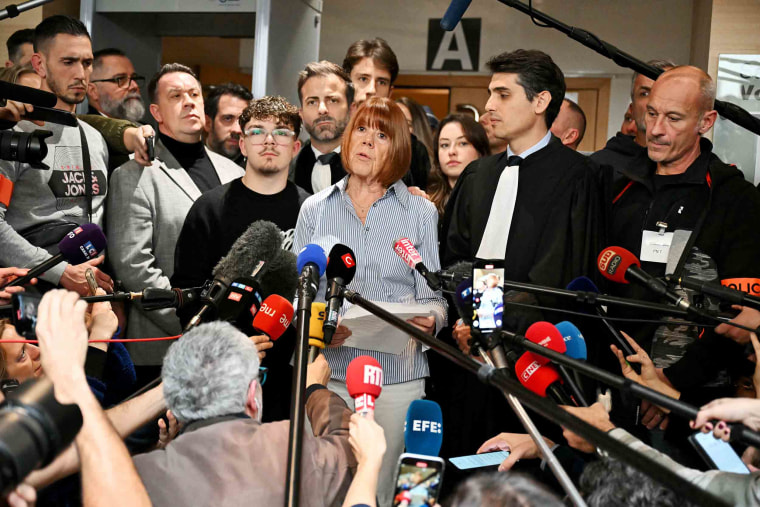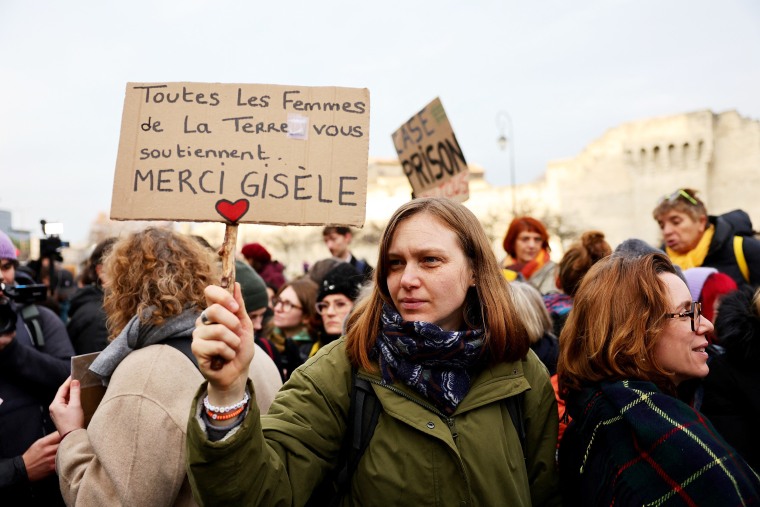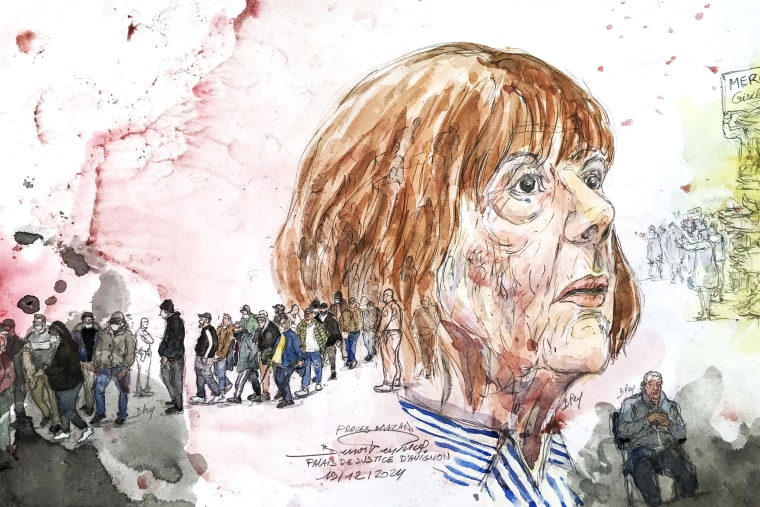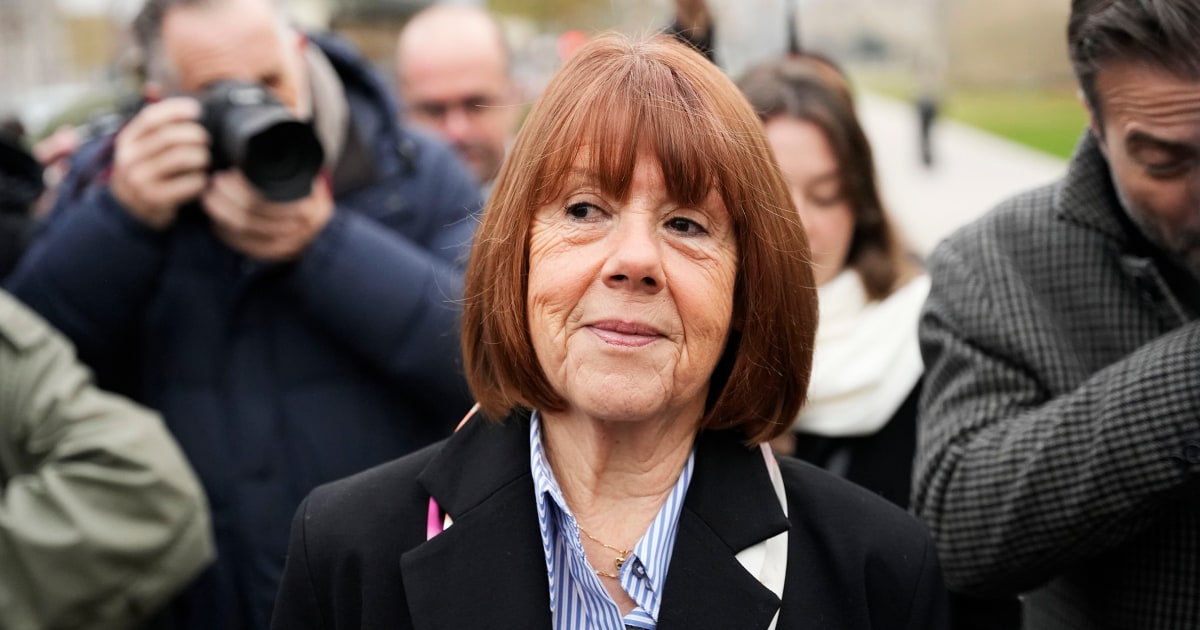Dozens of men found guilty in Gisèle Pelicot mass rape trial
Dozens of men, including the ex-husband of Gisèle Pelicot, were Thursday found guilty of raping and sexually assaulting her in a historic trial that shocked France.
Speaking with journalists in the southern town of Avignon after the verdicts were read, Pelicot, 72, said the outcome of her case gave her faith in a future in which “everybody, women, men can live together in harmony, in respect and in mutual understanding.”
Pelicot, who has become a hero to many in France for choosing to waive her right to anonymity and highlight the crimes orchestrated by her husband, added that she had fought the case with her children and her grandchildren in mind “because they are the future,” according to a live translation by NBC News’ British broadcasting partner, Sky News.

Earlier in the courtroom, she watched as Roger Arata, the lead judge, sentence her husband, Dominique Pelicot, to 20 years in prison. He had admitted to drugging her until she became unconscious and inviting dozens of men to rape her over the span of a decade.
Another 46 men were found guilty of rape, two of attempted rape and two guilty of sexual assault in the high-profile case, according to Sky News. They ranged in age from 26 to 74 and were handed sentences from three to 13 years. Collectively, they will serve more than 400 years.
Around 15 had admitted to the facts, although only a handful of the men accused expressed remorse in the lead-up to their verdicts.
In a side room, family members of the defendants watched the proceedings unfold on television screens, with some bursting into tears and gasping as the sentences were revealed, The Associated Press reported.

With emotions running high, some 200 police officers were deployed in and around the courthouse, which was packed with family members of the accused, spectators and journalists from around the world. More than 150 journalists were accredited to cover the trial, which many activists see as a watershed moment for women’s rights in France.
Pelicot said she respected the court and its decisions.
While each of the 51 men tried in the case were found guilty, outside the court campaigners against sexual violence said their sentences fell short of what was required.
Calling the terms far too lenient, Marion Vogel, who runs a therapy program for domestic violence and other trauma victims in Mazan, the village where the Pelicots lived, said, “Shame hasn’t really changed camps to include the courts.”
“It was absolutely essential for this high-profile trial to set an example and deliver deterrent sentences, so that every man’s mind would be marked by it, and our society could finally evolve,” she added.
Muriel Réus, a radio host whose organization, Femmes Avec, helps victims navigate the justice system, also said it was “not a real punishment for most of these men.”
In an earlier hearing, it was revealed that Pelicot only learned of the horrors she endured when police started an investigation into her husband after a security guard caught him filming up the skirts of women with his smartphone.
Investigators told they had found videos on her husband’s devices that suggested she herself had been the victim of a major crime.
While she could have remained anonymous, she called for the trial to be held in public and she instructed her lawyers to fight for harrowing video and other evidence to be played out in open court.
She has previously said she was doing this in a bid to put an end to the “macho, patriarchal society that trivializes rape.”

Campaigners against sexual violence had been hopeful that Pelicot’s case would represent a turning point in the fight against rape culture and in the difficulties that sexual assault survivors often face in obtaining justice.
And in France, some of them told NBC News earlier this week that they hoped to transform a society in which 75% of women said they believe they are not treated equally in a 2024 government study, and where last year, 230,000 women reported they had been victims of sexual violence.
“We have a real problem with French law,” said Magali Lafourcade, secretary general of the National Consultative Commission on Human Rights. “There are a huge number of situations which are not rape under French law [but] which are rape in the eyes of the victim.”

